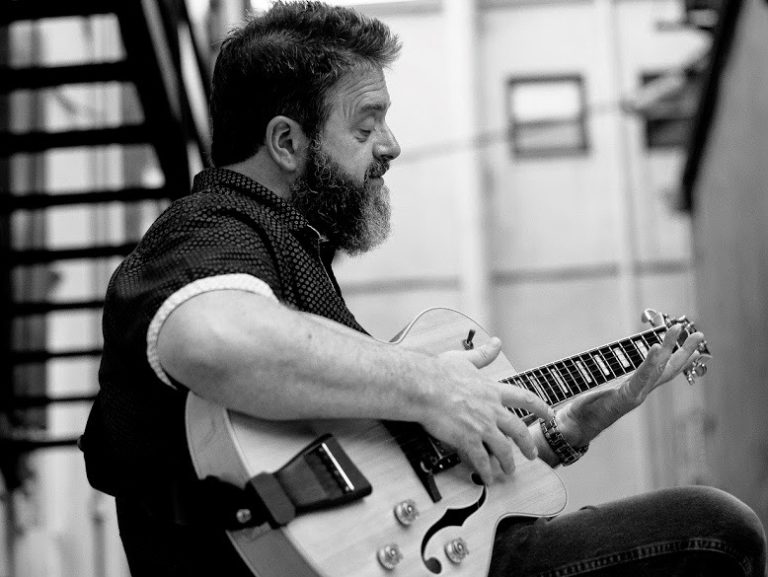
Courtesy of The ArtsCenter, an interview with Tim Carless by Neha Nataraju
The ArtsCenter is proud to partner with Tim Carless to bring you live entertainment every month! We sat down with Tim to ask him a few questions to get to know him and his craft better.

Q: To start us off, can you explain what you do as an artist and your background?
A: Well, my day to day now and this past year has been confined to a recording studio, doing more teaching recently. I have been teaching for a while, but in the past year, it’s really helped keep a roof over my head essentially. I’ve been a working musician since my late teens. Primarily, I’m a guitar player, but I play bass and the piano as well. I spent the better part of a decade as a working and touring guitar player as well as doing some recording sessions. After that, I opened a recording studio in Brighton, just south of London. Through that experience, I become more involved in the recording process, like as an engineer. That’s when I started getting involved in creating music for things other than records and albums, like advertising, independent films, television. That’s basically what I’ve been doing ever since, and after my time in England, I moved to the US, to LA then NY and then NC.
What does the process of live scoring silent films look like? How do you prepare for the event?
TC: So, with all projects where I have to score a film, whether it’s live or in a studio, I first start by spending a bit of time with the film itself. I write scores from the opening scenes to the end credits. During my live scores for the ArtCenter events virtual, I do it solo, but in person, I have an ensemble with me of percussion, double bass, and different instrumentation. So, when you have all that going on, you need to have a roadmap so people know where you are going. When I write the score in the beginning, I don’t always stick with it. It really is case by case, because sometimes I stick to my plan, but than other times, I go a different way. It’s not accurate to say that I’m improvising because I am playing themes that I’ve already discovered, but the way I convey those themes may change.
What is the relationship between your scores and the film? Do they complement each other or does one complement the other?
TC: There is a musician I admire, called Marc Ribot, did a solo score about 20 years ago, which is actually where I got the inspiration to do something similar. What he did during that performance and with his score that I really liked and think good scores should do was serve the film. The score should be sympathetic or empathetic to what’s happening on the screen, so that’s what I always aim for. It’s become very popular now for artists to live score films, however, I’ve noticed that oftentimes, these artists use the film as a backdrop for their score. The film becomes secondary to the event, and the music is the main focus, with the film serving the music. While this works well for some artists and is successful in its own way, I personally want my scores to serve the film – the film should be the main event and my music/score is the sidekick.
We asked Tim more questions which he kindly took the time to answer, and we hope to release follow-up blog posts with his answers to other questions before each event each month so stay tuned!
For more information on Tim Carless, visit his website.
View The ArtsCenter Blog: https://artscenterlive.org/blog/
The ArtsCenter is a 501(c)(3) Arts Education non-profit located in Carrboro, North Carolina which offers classes, performances, and art exhibits all year round. The ArtsCenter facilities include a 350-seat theater, classrooms, a dance studio, a 100-seat performance space, and an art gallery. The ArtsCenter is the single largest employer of artists in Orange County, and serves more than 100,000 students and citizens throughout the area.

